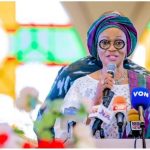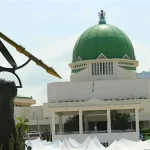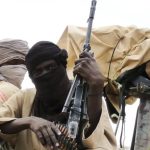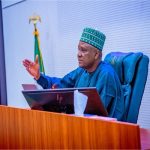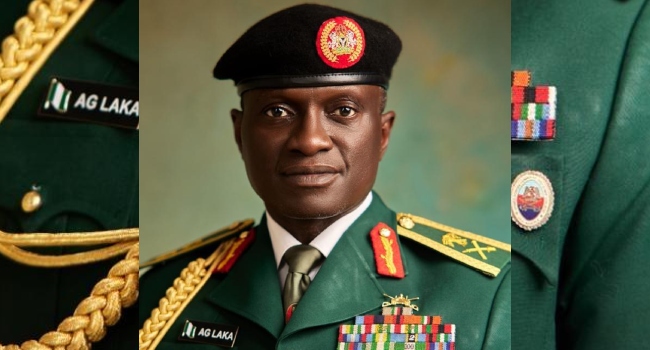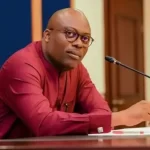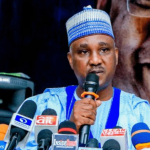The Coordinator of the National Counter Terrorism Centre (NCTC), Office of the National Security Adviser, Maj-Gen. Adamu Laka has said that “Issues of national security have both military and non-military dimensions”.
Accordingly, the two-star General called for a multi-pronged approach in addressing challenges of insecurity, occasioned by terrorism, insurgency, banditry, and other violent crimes confronting the nation.
Speaking at a strategic engagement with media executives/editors on counter-terrorism concerns on Wednesday, Laka said: “With the development of the National Counter Terrorism Strategy 2016, Policy Framework and National Action Plan for Preventing and Countering Violent Extremism 2017 and the National Security Strategy 2019, the functions of the Counterterrorism Center expanded as a value adding entity to various agencies and strategic partners in the counterterrorism efforts and actions.
“It is for the effective coordination of the increasing counterterrorism efforts and activities that further informed the upgrade of the Counterterrorism Center to a fully-fledged national centre following the enactment of the Terrorism Prevention and Prohibition Act 2022 and thus fully mandated us to coordinate all counterterrorism activities and efforts including terrorism financing. National security is all-encompassing.
“Security affairs is not only confined to the military, police, intelligence, and other law enforcement agencies as many people assume. Issues of national security have both military and non-military dimensions. It operates (through) the military border, geostrategic, demographic, cyber, resources, information, and many areas relating to socio-economic matters.
“This is the reason we engage kinetic, non-kinetic, and other generally accepted means in the efforts to resolve the security challenges confronting our great nation.
“The National Counterterrorism Center is engaged in a whole-of-government and whole-of-society approach in order to drive home the significance of the contribution of every strata of the Nigerian economy in the fight against the enemies of the Nigerian state.
“This meeting is to enable us to draw from your wealth of knowledge and experience with the hope to spark a conversation that will set a tangible agenda for the government, political leaders, and policymakers, and also offer guides for informed decision-making, national planning, and implementation of laudable projects and programs for national reconstruction and attainment of sustainable development.
“The resource person for this meeting will be speaking on the topic, Understanding Public Information Dissemination Platforms and Strategies for Effective Use in Countering Extremist Ideologies and Narratives.
“The National Counterterrorism Center sees the media as critical partners in the fight against terrorism and other violent crimes, and for us to be on the same page. The Center, in collaboration with the Institute for Peace and Conflict Resolution, in June this year conducted a two-day training on conflict-sensitive reporting”.
He added thus: “Since the rise of the Boko Haram insurgency in northeastern Nigeria in 2009, the country’s insecurity is exacerbated by terrorism, violent extremism, banditry, secessionist agitations and other forms of organized crimes.
“It is with the deliberate intent to address terrorism that warranted the signing into law the Terrorism Prevention Act. The Act necessitated the establishment of the Counterterrorism Center in 2012 as a directorate in the office of the National Security Advisor.
While underscoring the critical role of the media in setting agenda, as well as shaping opinions, the national coordinator said: *As media chiefs, there is no doubt that you are better informed than members of any other industry or profession of the happenings around the world and among these happenings are what we term wicked problems which the world is being bedevilled with. Terrorism is a global problem”.
Also speaking, the Special Adviser, Strategic Communication, ONSA, Zakari Mijinyawa, noted that: “Decisions of the media on what to report, how to report it, and when to report it can have profound implications, both intended and unintended.
“The challenges we face today are complex. Terrorism has become more decentralized, with ideologies spreading like wildfire through the very platforms that also serve as vital tools for free expression and democratic discussion.
“The media, while striving to inform and educate the public, must also navigate this very difficult landscape carefully, ensuring that coverage neither glorifies acts of terror nor inadvertently contributes to the spread of extremist narratives”.


